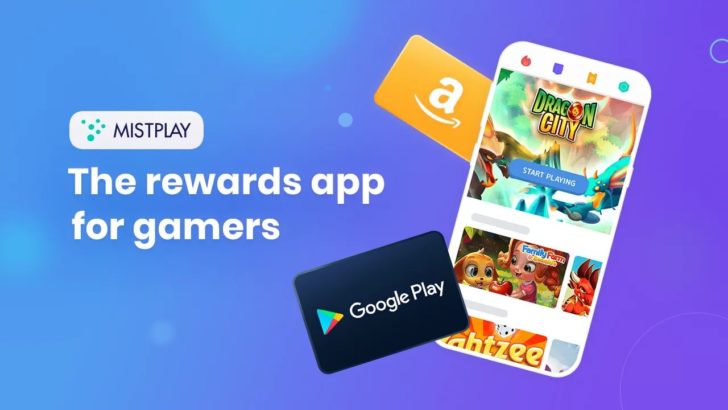Why Play-to-Earn Benefits Are Changing the Means You Play and Make
The development of play-to-earn designs indicates a notable shift in the video gaming landscape, welcoming gamers to discover not just the home entertainment value of games however additionally their possible as income-generating systems. Understanding these dynamics raises important concerns concerning the future of pc gaming and the effects for both gamers and programmers alike.
Emergence of Play-to-Earn Models
Over the last few years, the gaming industry has witnessed a considerable makeover with the appearance of play-to-earn versions, basically modifying just how gamers engage with digital environments. This innovative approach permits gamers to get concrete benefits through their in-game activities, creating a change from standard video gaming paradigms where satisfaction and competitors were the main motivations.
Play-to-earn models leverage blockchain modern technology and non-fungible symbols (NFTs) to offer players with possession of in-game possessions, which can be traded or offered for real-world currency. Because of this, gamers are incentivized to invest effort and time right into games, fostering a feeling of company and financial possibility. play to earn rewards. This change has brought in a varied player base, consisting of those who may have formerly seen pc gaming as a totally entertainment activity
Numerous systems have actually arised, showcasing effective implementations of this version, such as Axie Infinity and Decentraland. These systems have not only created considerable revenue yet likewise sparked conversations around the sustainability and ethics of such financial systems. As play-to-earn models remain to develop, they assure to redefine the connection in between players, programmers, and the wider electronic economic climate, leading the method for a brand-new era in pc gaming.
Benefits for Gamers
As players engage with play-to-earn designs, they open a range of benefits that prolong past plain entertainment. Unlike conventional video gaming, where gamers spend time and cash without substantial returns, play-to-earn systems allow gamers to earn copyright or in-game possessions that can be converted to real-world worth.
In addition, play-to-earn versions advertise neighborhood structure among players. Gamers often team up to accomplish shared objectives, therefore cultivating social connections that enrich the total experience. This feeling of area can cause cooperative gameplay, where players share strategies and sources, boosting both individual and group achievements.
Moreover, these versions can equalize access to gaming by permitting gamers from diverse economic histories to benefit financially. By getting involved in play-to-earn ecological communities, people can acquire skills and expertise regarding blockchain technology, more expanding their profession chances in the growing digital economic situation. Eventually, the benefits for players extend well past gameplay, impacting their social, financial, and academic landscapes favorably.
Difficulties in the Community
While the play-to-earn environment offers considerable possibilities, it is not without its challenges. Changes in worth can hinder potential players that look for stable earnings streams.
One more obstacle is the risk of frauds play to earn rewards and deceitful systems that can plague the community. Gamers might encounter deceptive systems guaranteeing high incentives yet inevitably leading to financial loss. Making sure trust fund and safety and security is vital for the lasting viability of play-to-earn models.
Furthermore, the environmental effect of blockchain video gaming can not be ignored. The power intake connected with mining and purchase handling elevates moral inquiries concerning sustainability. Video game programmers have to locate an equilibrium in between fulfilling gamers and lessening eco-friendly impacts.
Finally, the regulative landscape is still developing, positioning prospective risks for developers and gamers alike. Uncertain lawful structures can impede development and limit the development of play-to-earn ecological communities. Resolving these More Info difficulties is necessary for recognizing the full potential of this transformative pc gaming standard.
The Role of Blockchain Technology
Blockchain modern technology acts as the backbone of the play-to-earn ecosystem, resolving numerous of the difficulties previously detailed. By using decentralized ledgers, blockchain makes certain openness and security in transactions. Players can confidently earn and trade in-game assets, recognizing that ownership is verifiable and exempt to manipulation.

Tokenization of possessions plays a vital role, approving gamers true possession of their in-game items, which can be acquired, sold, or traded on numerous marketplaces. This urges a vibrant additional market, where gamers can monetize their skills and time spent in the video game.
Additionally, blockchain modern technology allows interoperability in between different games and systems, permitting players to bring their properties across different ecological communities. This flexibility not just boosts user experience however likewise advertises a more comprehensive pc gaming environment, eventually improving the landscape of pc gaming and earning.
Future Trends in Gaming
The video gaming sector gets on the brink of a transformative evolution, driven by emerging innovations and changing gamer expectations. As play-to-earn models gain traction, players are progressively looking for immersive experiences that mix amusement with tangible rewards. This shift is triggering designers to innovate, concentrating on producing interesting gameplay that cultivates area and communication.
One notable trend is the integration of virtual reality (VR) and augmented reality (AR), enhancing the gaming experience by providing deeper immersion and interactive atmospheres. In addition, innovations in expert system are making it possible for extra innovative non-player personalities (NPCs) and flexible gameplay, tailoring experiences to individual player choices.

Conclusion
In final thought, the play-to-earn model is considerably transforming the gaming landscape by enabling gamers to obtain real-world value from their in-game tasks. This standard shift not just boosts player engagement and financial investment however also raises obstacles that need to be addressed to ensure sustainability within the ecological community. As blockchain innovation remains to promote possession of digital properties, the future of video gaming assures additional development and possibilities for players throughout varied histories.